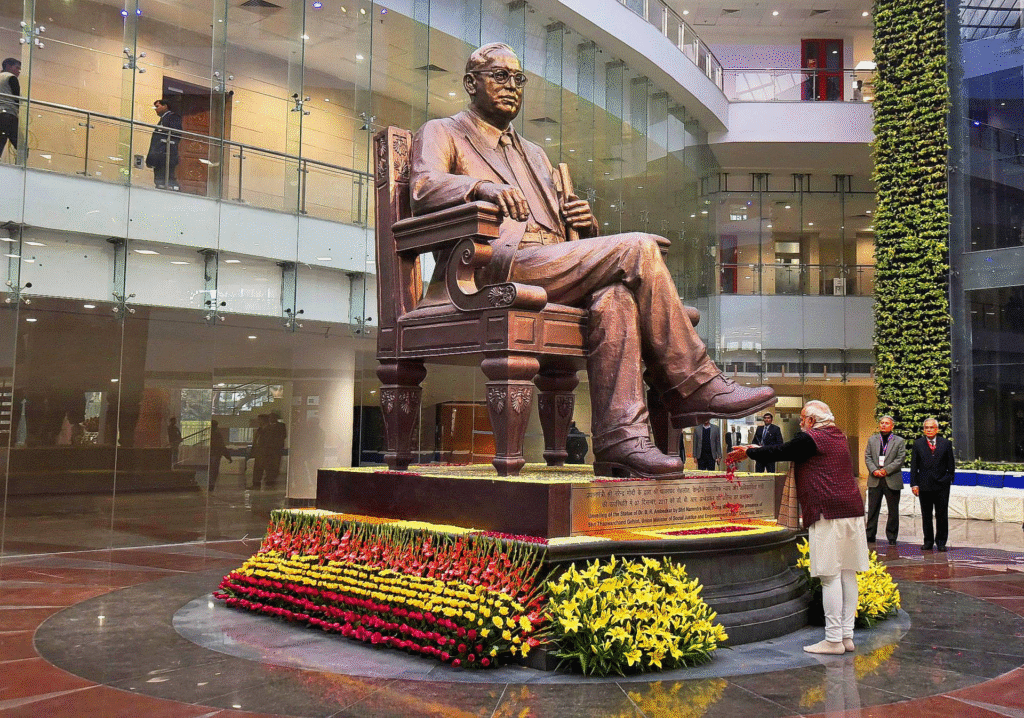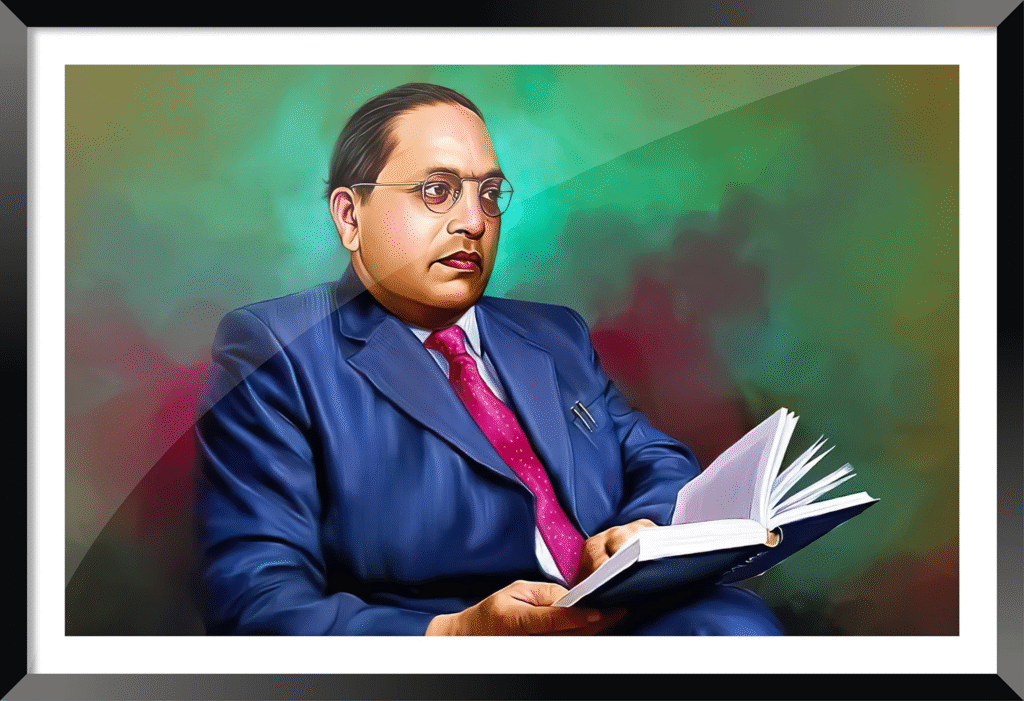Dr. B.R. Ambedkar’s Pivotal Role in Drafting the Indian Constitution: Key Contributions
Introduction As the Chairman of the Drafting Committee of the Constituent Assembly, Dr. B.R. Ambedkar played the most significant role in shaping India’s Constitution. Often called the “Father of the Indian Constitution,” his legal brilliance and commitment to social justice created a framework that transformed India from a colonial subject to an independent democratic republic. His contributions ensured constitutional safeguards for marginalized groups while balancing diverse interests. Ambedkar’s Vision for the Constitution Ambedkar envisioned the Constitution as: He famously said:“Constitutions are not merely legal documents but instruments of social revolution.” Key Contributions to the Indian Constitution 1. Fundamental Rights (Part III) Ambedkar ensured the inclusion of: Impact: These rights empowered Dalits, women, and minorities legally for the first time. 2. Directive Principles of State Policy (Part IV) Though not legally enforceable, these principles guide governance: Ambedkar’s View: He called DPSP a “cheque payable at the convenience of the State” – urging future governments to implement them. 3. Reservation System (Affirmative Action) Why It Mattered: Ambedkar saw reservations not as “privileges” but as compensatory justice for centuries of oppression. 4. Federal Structure with Strong Center Debate: Critics argue this made states weak, but Ambedkar feared divisive forces. 5. Abolition of Untouchability (Article 17) Ambedkar’s Warning: He said laws alone wouldn’t end casteism – societal change was needed. 6. Uniform Civil Code (Article 44) His Argument: Gender justice couldn’t be achieved with religion-based personal laws. 7. Independent Judiciary Landmark Impact: Enabled PILs (Public Interest Litigations) for social justice. 8. Constitutional Remedies (Article 32) Example: Used in cases like Navtej Singh Johar (decriminalizing homosexuality). 9. Secularism (Though Not Explicitly Worded) Contrast: Unlike Western secularism, Indian secularism doesn’t mean separation of religion and state but equal respect for all. 10. Village Panchayats & Local Governance (Article 40) Ambedkar’s Caution: Warned that villages were “sinks of caste oppression” unless reformed. Controversies & Criticisms Ambedkar’s Response: Resigned as Law Minister in 1951, calling compromises “a betrayal of Dalits.“ Legacy: A Constitution That Still Evolves Ambedkar’s Constitution has been amended 104 times, proving its flexibility. Key later additions influenced by his vision: Conclusion: A Framework for Justice Ambedkar didn’t just draft rules – he engineered a mechanism for social change. As he warned:“If the Constitution fails, it will not be because of its flaws, but because of the people who refuse to follow it in spirit.” Today, his Constitution remains both a shield for the oppressed and a compass for India’s democracy.







